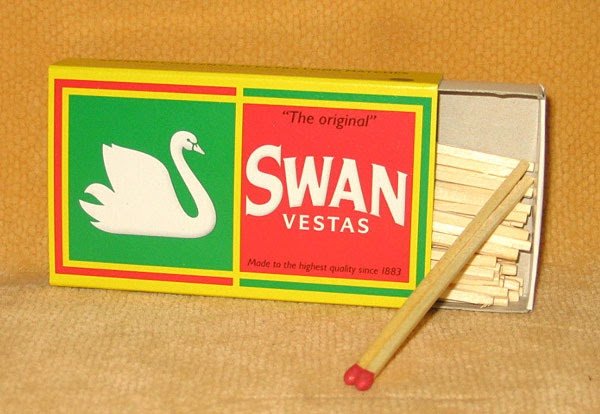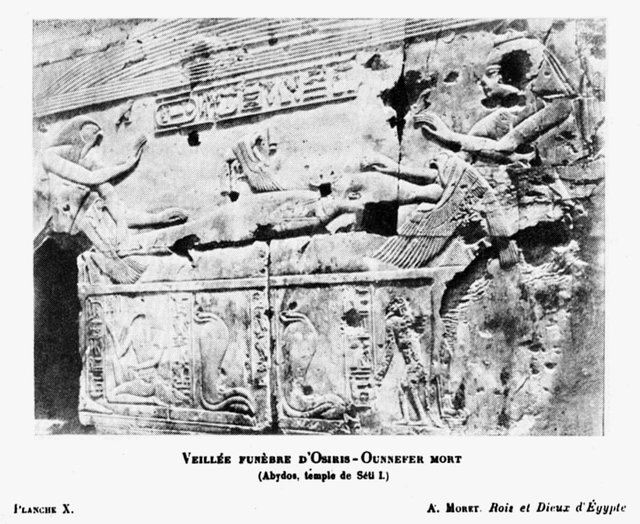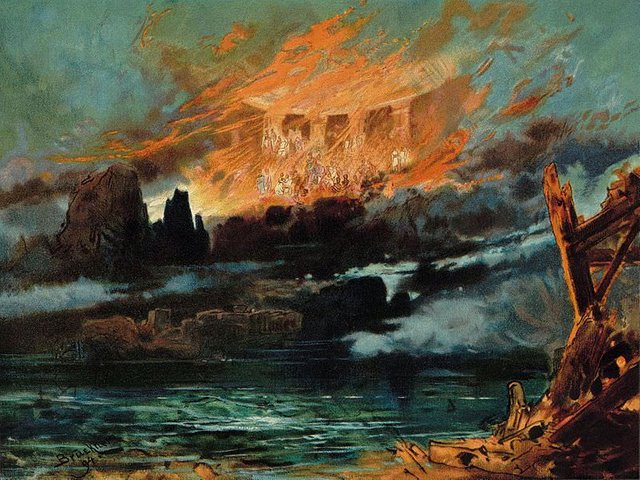How Bootifull and How Truetowife of Her

As I have said several times before, the opening chapter of Finnegans Wake is preludial. If Finnegans Wake were an opera, this chapter would be the overture that is played before the curtain rises. Everything in this chapter should be read as a foreshadowing of some salient moment that will be played out in a subsequent chapter. Pages 009-012 in The Restored Finnegans Wake, which we are currently studying, foreshadow Book I, Chapter 5 (RFW 083-099), The Mamafesta, which is essentially a commentary on ALP’s famous Letter to HCE. They also foreshadow a section of the book’s final chapter in which we finally get to hear the Letter in full—one version of it, at any rate (RFW 481.28-485.10).
The second paragraph of this section, RFW 009.35-010.16, is a portrait of ALP. In the space of twenty-two lines Joyce gives us a brief biographical sketch of HCE’s wife, the onlie begetter of the Letter.
First Draft
Joyce’s first draft of this paragraph only comprises an early version of its opening and closing sentences:
She brings us her presents from the goneaway past how there’ll be eggs for the brekkers come to mourning. For where there’s a gale find gall & wherethen a hind seek the hun. (Hayman 52)
Note the contrast between the Brunonian opposites:
Present [presents] and Past [the goneaway past]
Native Irishman [gale = Gael] and Foreigner Invader [gall = Gall]
Space [where there’s] and Time [wherethen]. Joyce later emended wherethen to whenthere’s.
In the published version, there are several additional pairs of Brunonian opposites:
lordyheirs and ladymaidesses
Greeks and Trojans
young wimman and young min
Cock and Hen
Clearly, the coincidence of opposites [coincidentia oppositorum] was a key element in this paragraph long before Joyce turned it into a character sketch of ALP. Anna Livia Plurabelle represents the link between past and present. It is she who knits up the two ends of Finnegans Wake, turning the stream into an endless cycle.

ALP
Anna Livia Plurabelle is a resilient woman, who knows her duty as both wife and mother. She will gladly gather cockles and mussels on the seashore to feed her family in times of dearth. She will make sure that there is always enough turf in the yard to keep the house warm. And whatever the circumstances, there will always be eggs for breakfast, a loaf of bread and a pot of tea.
ALP is the steward of The Mullingar House. The management of the establishment is in her hands. It is she who keeps the business afloat. Note the cluster of terms taken from economics:
- debt
- duty
- mercenary
- liquidation
- loan
- hire
- business
Roland McHugh summed up this paragraph and the preceding one thus:
[ALP] is transmission, supplying the future with the eroded furniture of the past. As a river she conceals the somnolent [HCE], to cast him up at propitious times. As the Magna Mater [Latin: Great Mother] she perpetuates his genotype. Her contributions to [Issy’s] letter in II.2 [School Nessans] are relics of [HCE] which we first saw collected in I.1. At [RFW 009.18-19] [ALP] arrives after the battle as a bird of peace or paradise, as a fairy godmother, as a hen in the landscape. During the truce she salvages spoiled goods which are also parts of [HCE], as Isis collected the severed remains of Osiris ... Despite [HCE’s] disintegration, [RFW 010.12-14] promises his mourners eggs for their breakfasts provided by the hen, who retains his primordia. (McHugh 1976:64)

Floote!
Like Richard Wagner’s operatic tetralogy Der Ring des Nibelungs, Finnegans Wake ends with a Flood. In The Ring Cycle, the River Rhine overflows its banks and floods the German landscape, washing it clean of sin and creating a tabula rasa, or blank slate, so that the World can start over again. In Finnegans Wake, it is the Liffey that washes over the Irish landscape and wipes the slate clean. And like The Ring, Finnegans Wake is a cyclical work: when we turn the last page of the book, we find ourselves back at the beginning. So now, as we are reading Page 010, the Flood that occurred—and will recur —at the end of the book is still abating:
She first obscures [her spoiled goods] by flooding: ‘Though the length of the land lies under liquidation (floote!) and there’s nare a hairbrow nor an [eyebrusch] on this glaubrous phace of Herrschuft Whatarwelter’ ... The universal flood in Norse myth was occasioned by the death of Ymir , father of the giants. When the water subsided Ymir’s body became the world, his hair the trees and his eyebrows the grass and flowers. (McHugh 1976:64)

- Der Herr schuf die Welt: (German) The Lord created the World.
References
- David Hayman, A First-Draft Version of Finnegans Wake, University of Texas Press, Austin TX (1963)
- James Joyce, Finnegans Wake, The Viking Press, New York (1958, 1966)
- Charlton T Lewis, Charles Short, A New Latin Dictionary, Harper & Brothers, Publishers, New York (1891)
- Roland McHugh, The Sigla of Finnegans Wake, University of Texas Press, Austin TX (1976)
- Alexandre Moret, Rois et Dieux d’Égypte, Librairie Armand Colin, Paris (1911)
- Danis Rose, John O’Hanlon, The Restored Finnegans Wake, Penguin Classics, London (2012)
Image Credits
- The Liffey Swim: Jack B Yeats (artist), © National Gallery of Ireland, NGI 941, Fair Use
- Swan Vestas: Copyright Unknown, Fair Use
- Isis Reconstructs the Body of Osiris: Alexandre Moret, Rois et Dieux d’Égypte, Librairie Armand Colin, Paris (1911), Public Domain
- Götterdämmerung: Earth is Destroyed by Water and Valhalla by Fire: Wikimedia Commons, Max Brückner (set designer), Public Domain
Useful Resources
- Joyce Tools
- FWEET
- The James Joyce Scholars’ Collection
- FinnegansWiki
- James Joyce Digital Archive
- Annotated Finnegans Wake (with Wakepedia)
- From Swerve of Shore to Bend of Bay

very nice literature post dear.love you and keep it up